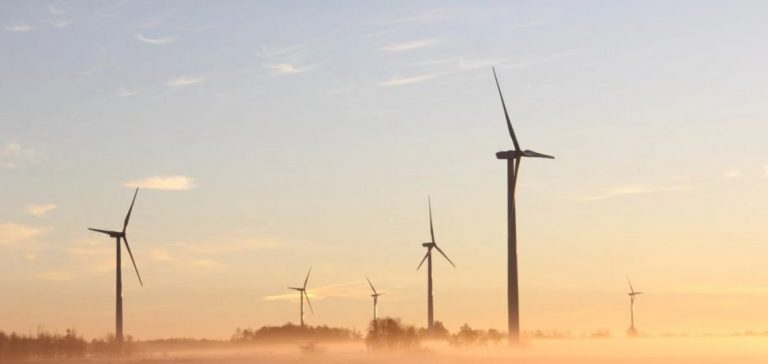The Netherlands has reached a historic milestone in its energy transition. In 2024, for the first time, renewable sources produced more electricity than fossil fuels during the first six months of the year. According to CBS, wind, solar, and biomass energy generated 32.3 billion kilowatt-hours (kWh), accounting for 53% of the country’s total electricity. This performance marks a strategic shift in reducing reliance on fossil fuels while supporting both national and European climate commitments.
The data also show a significant decline in electricity production from coal and natural gas, confirming the shift toward cleaner and more sustainable sources. Coal power generation fell by nearly 40% in 2024, reaching only 3.9 billion kWh. This decline is partly due to the increased competitiveness of renewables, made more attractive by technological advancements and infrastructure development.
Offshore Deployment and Capacity Expansion
Wind energy has been the main driver of this transition. Wind power production increased by 4.4 billion kWh compared to 2023, reaching 17.4 billion kWh, a 33% growth. This performance is due to the development of new offshore wind farms such as Hollandse Kust Zuid and Hollandse Kust Noord and the modernization of existing onshore infrastructure. Total installed capacity has now reached 11 GW, consolidating the Netherlands’ position as one of the European leaders in offshore wind.
However, the growth of wind energy also comes with logistical challenges, particularly in managing intermittent production and connecting to the national grid. Dutch authorities are continuing efforts to strengthen infrastructure, focusing on creating offshore energy hubs and developing new storage technologies.
Complementary Solar and Biomass Growth
Solar energy has also contributed to the growth of renewables. Production reached 11.7 billion kWh, an increase of 0.8 billion kWh from the previous year. Government support initiatives, such as subsidies for residential and industrial solar installations, have facilitated this rapid growth. However, the urban density of the Netherlands limits the expansion of solar installations, requiring innovations like floating solar panels.
Biomass production showed a more modest growth, with a 16% increase, reflecting the limitations of this technology in terms of sustainable resource availability. Nevertheless, biomass continues to play a complementary role in the energy mix, particularly during periods of low solar or wind production.
Coal in Decline, Natural Gas Still Present
In 2024, electricity production from fossil fuels fell to 28 billion kWh, primarily due to the decreased use of coal and natural gas. Coal, historically a key source of power generation, is now marginalized. Natural gas power plants, though still necessary for balancing production, also reduced their output, producing only 21.3 billion kWh.
This overall decline in fossil fuels occurs in the context of a strategic shift toward alternative flexibility sources, such as green hydrogen. Dutch authorities are also planning to gradually reduce natural gas dependency by diversifying supply sources and enhancing energy efficiency.
Impact on the Electricity Market
The evolving energy mix has also affected electricity trade flows. For the first time in 2024, the Netherlands exported more electricity than it imported, with a net surplus of 2.3 billion kWh. However, exports to Belgium and Germany decreased by 9% and 7%, respectively, due to increased nuclear production in France and a reorganization of European energy flows.
On the domestic market, electricity consumption increased by 5%, reaching 55.8 billion kWh. This increase is attributed to a post-pandemic industrial recovery and a growing need for electrification in the transport and construction sectors.
Future Outlook: Objectives and Challenges
The Netherlands is positioning itself at the forefront of the European energy transition. The goal is to achieve nearly 100% renewable electricity production by 2030, continuing to expand wind and solar capacities and integrating large-scale storage technologies to stabilize supply.
Challenges remain: managing intermittency, infrastructure costs, and the need for increased European coordination to optimize cross-border interconnections. However, the current momentum shows that the Netherlands is well on its way to decarbonizing its energy system.






















